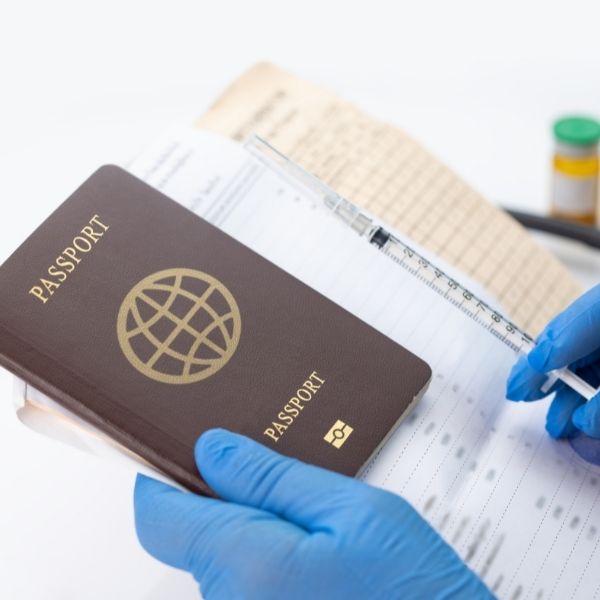
General Travel Vaccination Advice for Swaziland
The decision to take a trip to Swaziland is your choice and you are in charge of getting all the vaccination you are needed to have ahead of your planned trip to Swaziland.
The material on this page is provided for information only and compiled from travel advice and warnings for Swaziland by authorities around the globe to their citizens.
While we make every effort to give you correct travel advice information, it is provided on an “as is” basis without warranty of any kind, expressed or implied.
This owners of this website does not assume responsibility and will not be liable for any damages in connection to the information provided.
General Vaccination Needed for Swaziland
Do I require to inoculation when travelling to Swaziland? Anyone wanting to go on holiday or business trip to Swaziland require to get in touch with a health care specialist or go to a travel health clinic ideally six weeks prior to you travel regarding the folloing:
Routine Vaccinations – Make certain that your routine vaccines such as inoculation for measles-mumps-rubella (MMR), diphtheria, tetanus, pertussis, polio, varicella (chickenpox), flu and others are up-to-date no matter your travel to Swaziland.
In addition, you may be at risk for these vaccine-preventable diseases while travelling in Swaziland. Talk with your travel health expert concerning which of these vaccines are right for you:
- Covid 19 is an infectious viral disease. It can spread from one person to another by direct contact and also through droplets airborne.
- Hepatitis B A disease of the liver spread through blood or other bodily fluids. Tourists that might be exposed (e.g., through sexual contact, clinical treatment, sharing needles, tattooing, acupuncture or job-related exposure) need to get immunized.
- Influenza (Flu) Seasonal flu takes place worldwide is triggered by a virus spread from one person to another when they cough or sneeze or by touching items as well as surface areas that have actually been contaminated with the virus.
- Measles is an extremely contagious viral disease. It can spread out quickly from person to person by direct contact and also through droplets airborne.
- Tick-borne encephalitis exists in some locations of Swaziland and it is a viral disease that affects the central nervous system (brain as well as spinal cord). It is spread to human beings by the bite of infected ticks or when you take in unpasteurized milk products.
Is it safe to travel to a location with pets in Swaziland?
Travellers to Swaziland are usually cautioned to avoid contact with animals, including pets, monkeys, snakes, rodents, birds, as well as bats. Some infections discovered in some locations of Swaziland, like avian influenza as well as rabies, can be shared between human beings and animals.
Whilst taking a trip Swaziland, is it safe to drink water in Swaziland?
Tourists to any location in the world including Swaziland can pick up travellers’ diarrhea from consuming contaminated water or food.
As food and water can carry diseases like cholera, hepatitis A, schistosomiasis as well as typhoid, constantly practice safe food and water precautions while travelling in any part of the globe. Remember: Boil it, cook it, peel it, or leave it!
Travel insurance policy for Swaziland
Travel health cover is one of the main factors visitors obtain travel insurance policy. It will not prevent you getting sick or hurt, though it can stop you suffering financially. Medical assistance overseas can be really expensive.
You have to pay for all treatment you receive overseas. You can’t expect to get free or subsidised treatment through your Swaziland’s public health system, like you would in your home country.
If you can not pay, local authorities can arrest you. The government from your home country can not pay you health care costs for you, loan you money or get you out of jail.
You require travel insurance for travelling to Swaziland. You also need to make certain you choose a plan that is right for you.
Check out the small print of your travel insurance policy.
Declare all pre-existing conditions to your travel insurance firm upfront. If you don’t, you might invalidate your travel insurance coverage.
Inform your travel insurance company the activities you plan to do, prior to you go. Many popular activities like snowboarding are excluded in basic plans. You may require to pay additional.
Check if you have free credit card travel insurance. Some cards include travel insurance cover. However, they frequently have various conditions than paid plans. Be aware of the differences.
If you’re travelling to Swaziland from a country that has a reciprocal healthcare arrangement, you still require travel medical insurance. Agreements are limited in what they’ll will cover.
If you have a terminal disease, you might not be able to get standard travel insurance. However you may be able to find a specialised insurance company that covers you for health, mishaps or property issues unassociated to your illness. Speak with your insurance provider to find out.
Learn more about getting global travel insurance coverage for Swaziland before you go.
